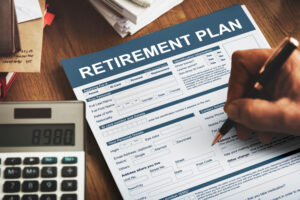With the minimum age for retirement pension being 55-62 years with a 30-year subscription period for UAE nationals, but no equivalent system for expats, retirement planning in the UAE becomes a personal responsibility that you can’t afford to ignore. Whether you’re 25 or 45, starting your retirement plan today could be the difference between financial freedom and uncertainty.
Understanding Your Current Position as an Expat
Let’s start with what you have. While expatriates don’t qualify for mandatory pension schemes available to Emirati nationals, they do have access to End of Service Gratuity (EOSG) and a growing range of voluntary and workplace-based pension plans.
Your end-of-service gratuity typically equals 21 days of salary for each year of service for the first five years, then 30 days for each subsequent year. But let’s be honest, is that enough for a comfortable retirement?
If you’re earning AED 10,000 monthly and work for 20 years, your gratuity might reach around AED 400,000. While that sounds substantial, it won’t sustain you through decades of retirement, especially with inflation eating into your purchasing power.
Professional Guidance Matters
Retirement planning in the UAE involves navigating complex regulations, tax implications across multiple jurisdictions, and investment options that might be unfamiliar. Professional financial advisors who understand the UAE market can help you avoid costly mistakes and optimize your strategy.
They can also help you understand how your retirement planning fits with your overall financial goals, including children’s education, property purchases, and wealth transfer planning.
Building Your Investment Portfolio
Smart retirement planning in the UAE extends far beyond relying on gratuity payments. The UAE has three stock exchanges you can invest in: the Dubai Financial Market (DFM), the Abu Dhabi Securities Exchange (ADX), and Nasdaq Dubai, offering local investment opportunities alongside international options.
Here’s where diversification becomes crucial:
- International mutual funds and ETFs: These provide global exposure and help protect against regional economic fluctuations
- Local real estate: Dubai’s property market offers rental income potential and capital appreciation
- Bond investments: Government and corporate bonds provide steady, predictable returns
- Structured products: These can offer higher returns but require careful evaluation of risks
Investing in stocks, bonds, or mutual funds can help grow your wealth faster than a traditional savings account, but remember that higher returns come with higher risks.
Tax Advantages and Strategic Planning
One of the UAE’s biggest advantages for retirement planning is the absence of personal income tax. This means every dirham you save and invest works harder for your future than it would in most other countries.
Consider setting up offshore investment accounts that allow you to maintain your investments even if you move countries later. Many expats use international insurance-linked investment plans that offer tax-efficient growth and flexibility for global mobility.
The key is starting early due to compound interest; someone who starts investing AED 2,000 monthly at age 30 will have significantly more at retirement than someone who starts investing AED 4,000 monthly at age 40.
Creating Your Action Plan
Your UAE retirement plan should start with a clear assessment of your current financial position and retirement goals. How much will you need monthly in retirement? When do you want to retire? Will you stay in the UAE or return to your home country?
Begin by maximizing your employer’s voluntary pension contributions if available. Then establish a diversified investment portfolio that balances growth potential with risk management. Set up automatic transfers to ensure consistent investing regardless of market conditions.


No Comments